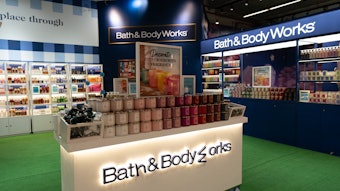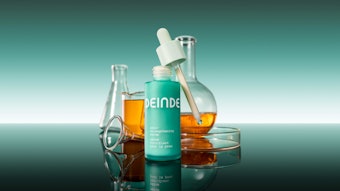
A project to develop surface treatments that can provide long-lasting protection against the COVID-19 virus has been launched at the University of Birmingham. The work will have implications for packaging.
Related: Beauty Accelerate: Hand, Face and Wellness Solutions for COVID-19
The research will be carried out over the next 18 months and will work on the development of new antiviral sprays, films and other products. These can be delivered via additives in existing commercial products, such as detergents, or integrated with current packaging processes, forming an invisible and long-lasting film of sub-micron thickness.
Unlike existing disinfectants, the formulations will be designed to both capture the aerosol droplets and inactivate the virus.
The research is funded by the Engineering and Physical Science Research Council and partners with the University of Cambridge, Dupont Teijin Film, Innospec, and FiberLean with the aim of rapidly commercializing the formulations produced.
A key focus during the first phase of the project will be to better understand the underpinning antiviral mechanism. This is important because recent evidence suggests different surfaces can affect the ability of the COVID-19 virus to survive. Smooth surfaces like plastic and stainless steel can keep the virus active for several days unlike newspapers, where it stays active only for only a few hours.
Surface characteristics such as porosity, rigidity, and roughness all affect the virus’s viability, and the team aim to draw on their expertise in soft matter, surface chemistry, formulation engineering, and microbiology together with the product development capabilities offered by the industrial partners.
Project lead, Zhenyu Jason Zhang, Ph.D. from the University of Birmingham’s School of Chemical Engineering said, “Scientific work so far suggests that COVID-19 is transmitted via aerosol droplets that not only carry but very likely protect the virus. The products we are developing will disrupt such protective environment, leaving the virus exposed and unable to survive once the aerosol droplets land on a communal surface such as handrail, table top.”










